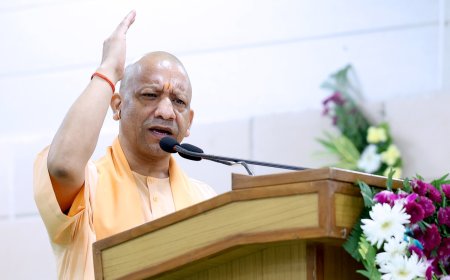Tender Hearts need greater care
The rise in heart ailments among children in India is a growing concern, reflecting broader public health issues

Lucknow: The rise in heart ailments among children in India is a growing concern, reflecting broader public health issues. Various factors contribute to this trend, and addressing it requires a multi-faceted approach. Here are some key points to consider:
Contributing Factors
Congenital Heart Diseases (CHD)
Prevalence: CHD is one of the leading causes of heart ailments in children. It affects around 8-10 children per 1,000 live births in India.
Awareness and Detection: Early detection through improved prenatal and postnatal screening is essential. However, lack of awareness and insufficient medical facilities in rural areas pose challenges.
Lifestyle and Environmental Factors
Diet and Nutrition: Poor dietary habits, including high consumption of junk food, sugary drinks, and processed foods, contribute to obesity and other risk factors for heart disease.
Physical Inactivity: Urbanization has led to a sedentary lifestyle among children, reducing their physical activity levels.
Pollution: Air pollution, particularly in urban areas, has been linked to various cardiovascular issues.
Genetic and Family History
Inherited Conditions: Some heart conditions are inherited. Family history of heart disease can increase the risk in children.
Rheumatic Heart Disease (RHD)
Infection: Streptococcal throat infections, if untreated, can lead to rheumatic fever and subsequently RHD. This is more common in children from lower socio-economic backgrounds due to limited access to healthcare.
Health System Challenges
Healthcare Access
Urban vs. Rural Divide: Access to specialized pediatric cardiac care is limited, especially in rural areas.
Affordability: High costs of treatment and surgery for heart conditions can be prohibitive for many families.
Public Health Initiatives
Screening Programs: There is a need for comprehensive screening programs in schools and communities to identify children at risk.
Awareness Campaigns: Educating parents and communities about the importance of early diagnosis and management of heart conditions.
Government and Policy Support
Policies: Implementation of policies focused on maternal and child health can help reduce the incidence of congenital and acquired heart diseases.
Funding: Increased funding for pediatric cardiology units and training of specialized healthcare professionals.
Preventive Measures and Recommendations
Healthy Lifestyle Promotion
Nutrition: Encouraging balanced diets rich in fruits, vegetables, whole grains, and lean proteins.
Physical Activity: Promoting regular physical activity through sports and other recreational activities.
Regular Health Check-ups
Monitoring: Regular health check-ups to monitor growth, development, and early signs of heart problems.
Vaccination and Infection Control
Vaccines: Ensuring children are vaccinated against diseases that can indirectly affect heart health, such as influenza and streptococcal infections.
Hygiene: Promoting good hygiene practices to prevent infections that can lead to heart complications.
The increase in heart ailments among children in India is a multifaceted issue requiring coordinated efforts from healthcare providers, policymakers, and communities. By improving early detection, promoting healthy lifestyles, and ensuring access to quality healthcare, it is possible to mitigate this growing public health challenge.
What's Your Reaction?














































